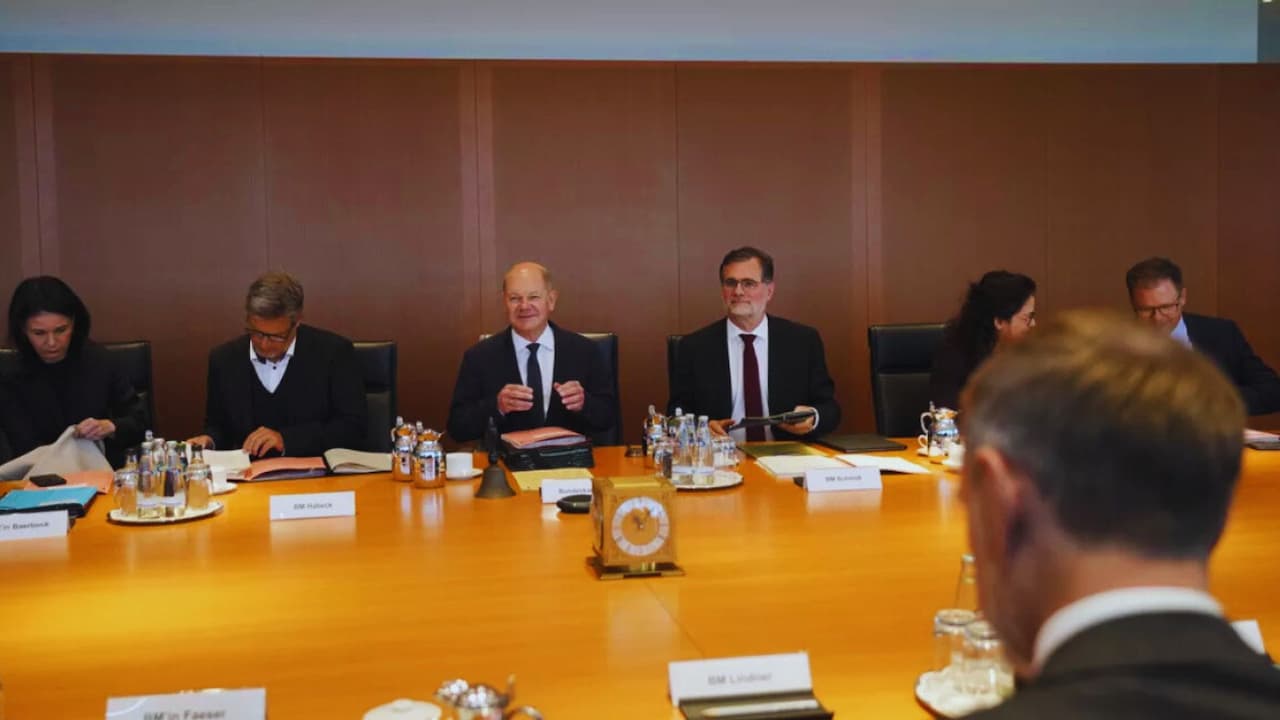Political earthquake in Berlin: Scholz dismisses Finance Minister, German Coalition Crumbles
In a dramatic turn of events that has sent shockwaves through European politics, German Chancellor Olaf Scholz has fired his Finance Minister Christian Lindner, triggering what many are calling the biggest political crisis in Germany since 2005.
“He has broken my trust too many times,” Scholz declared in a packed press conference at the Berlin Chancellery yesterday evening. The Chancellor’s words cut through the tense atmosphere as he announced the dismissal of Lindner, effectively ending the three-party “traffic light” coalition that has governed Germany since 2021.
The split comes at a crucial moment for Europe’s largest economy. With storm clouds gathering over the German economy and global markets watching nervously, the timing couldn’t be more critical. The government collapse has already sent ripples through financial markets, with the Euro dropping sharply against major currencies in early trading.
The Breaking Point
The final straw came after what insiders described as a heated coalition meeting in Berlin. At the heart of the dispute was Lindner’s controversial 18-page economic paper titled “Germany’s Economic Turnaround,” which many saw as more of a campaign manifesto than a government policy document.
Robert Habeck, the Green Party’s Economy Minister, tried to salvage the situation but found himself caught between two opposing forces. “From our perspective, it wasn’t necessary to end things this way,” Habeck told reporters, his frustration visible as he spoke to journalists outside the Chancellery.
What Happens Next?
Chancellor Scholz has announced a confidence vote for January 15, 2025, setting the stage for potential early elections by the end of March. This timeline means Germans might head to the polls nearly six months earlier than planned.
The political drama unfolds against a backdrop of
- A struggling German economy
- Growing concerns about global security
- Rising support for far-right parties
- Mounting pressure on public finances
Alice Weidel, leader of the far-right Alternative for Germany (AfD), was quick to celebrate the coalition’s collapse, calling it “a liberation for our country” in a statement that highlights the polarized political landscape.
International Implications
International circles question the timing of this political crisis, especially in light of the uncertain global political climate. German political analyst Thu Nguyen from the Jacques Delors Centre notes that many had hoped the coalition would stand firm in the face of international challenges.
Friedrich Merz’s CDU opposition could be pivotal in the upcoming weeks. Scholz has already indicated his willingness to work with the opposition to pass vital economic and defense legislation before the likely early elections.
“The economy cannot wait until after the elections,” Scholz stressed, highlighting the urgency of the situation.
Looking Ahead
As Berlin braces for what promises to be a turbulent winter, questions remain about Germany’s political future. The collapse of the traffic light coalition marks the end of an experiment in three-party governance that brought together unlikely partners.
With early elections looming, Germany faces a period of uncertainty that could reshape its political landscape. The coming weeks will be crucial as parties position themselves for what might be one of the most significant electoral battles in recent German history.
